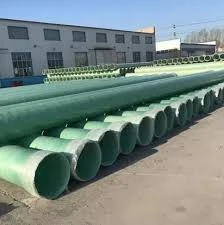
-
 Afrikaans
Afrikaans -
 Albanian
Albanian -
 Amharic
Amharic -
 Arabic
Arabic -
 Armenian
Armenian -
 Azerbaijani
Azerbaijani -
 Basque
Basque -
 Belarusian
Belarusian -
 Bengali
Bengali -
 Bosnian
Bosnian -
 Bulgarian
Bulgarian -
 Catalan
Catalan -
 Cebuano
Cebuano -
 China
China -
 China (Taiwan)
China (Taiwan) -
 Corsican
Corsican -
 Croatian
Croatian -
 Czech
Czech -
 Danish
Danish -
 Dutch
Dutch -
 English
English -
 Esperanto
Esperanto -
 Estonian
Estonian -
 Finnish
Finnish -
 French
French -
 Frisian
Frisian -
 Galician
Galician -
 Georgian
Georgian -
 German
German -
 Greek
Greek -
 Gujarati
Gujarati -
 Haitian Creole
Haitian Creole -
 hausa
hausa -
 hawaiian
hawaiian -
 Hebrew
Hebrew -
 Hindi
Hindi -
 Miao
Miao -
 Hungarian
Hungarian -
 Icelandic
Icelandic -
 igbo
igbo -
 Indonesian
Indonesian -
 irish
irish -
 Italian
Italian -
 Japanese
Japanese -
 Javanese
Javanese -
 Kannada
Kannada -
 kazakh
kazakh -
 Khmer
Khmer -
 Rwandese
Rwandese -
 Korean
Korean -
 Kurdish
Kurdish -
 Kyrgyz
Kyrgyz -
 Lao
Lao -
 Latin
Latin -
 Latvian
Latvian -
 Lithuanian
Lithuanian -
 Luxembourgish
Luxembourgish -
 Macedonian
Macedonian -
 Malgashi
Malgashi -
 Malay
Malay -
 Malayalam
Malayalam -
 Maltese
Maltese -
 Maori
Maori -
 Marathi
Marathi -
 Mongolian
Mongolian -
 Myanmar
Myanmar -
 Nepali
Nepali -
 Norwegian
Norwegian -
 Norwegian
Norwegian -
 Occitan
Occitan -
 Pashto
Pashto -
 Persian
Persian -
 Polish
Polish -
 Portuguese
Portuguese -
 Punjabi
Punjabi -
 Romanian
Romanian -
 Russian
Russian -
 Samoan
Samoan -
 Scottish Gaelic
Scottish Gaelic -
 Serbian
Serbian -
 Sesotho
Sesotho -
 Shona
Shona -
 Sindhi
Sindhi -
 Sinhala
Sinhala -
 Slovak
Slovak -
 Slovenian
Slovenian -
 Somali
Somali -
 Spanish
Spanish -
 Sundanese
Sundanese -
 Swahili
Swahili -
 Swedish
Swedish -
 Tagalog
Tagalog -
 Tajik
Tajik -
 Tamil
Tamil -
 Tatar
Tatar -
 Telugu
Telugu -
 Thai
Thai -
 Turkish
Turkish -
 Turkmen
Turkmen -
 Ukrainian
Ukrainian -
 Urdu
Urdu -
 Uighur
Uighur -
 Uzbek
Uzbek -
 Vietnamese
Vietnamese -
 Welsh
Welsh -
 Bantu
Bantu -
 Yiddish
Yiddish -
 Yoruba
Yoruba -
 Zulu
Zulu
frp pipes and fittings for ship building
FRP Pipes and Fittings for Shipbuilding
The shipbuilding industry continually seeks innovative materials that can withstand the harsh marine environment while offering durability and reducing maintenance costs. One such material gaining prominence is Fiber-Reinforced Plastic (FRP). FRP pipes and fittings present a game-changing solution that addresses many challenges faced in marine applications, enhancing operational efficiency and safety.
What is FRP?
FRP, or Fiber-Reinforced Plastic, is a composite material made from a polymer matrix reinforced with fibers, usually glass or carbon. This combination provides an exceptional strength-to-weight ratio, high corrosion resistance, and excellent durability, making FRP an ideal choice for maritime applications where exposure to saltwater, harsh weather conditions, and varying temperatures can severely degrade traditional materials.
Advantages of FRP Pipes and Fittings
1. Corrosion Resistance One of the most significant advantages of FRP is its ability to resist corrosion. Unlike traditional materials like steel or cast iron, which can rust and degrade in marine environments, FRP pipes and fittings do not succumb to corrosion, extending their lifespan and reducing the need for frequent replacements or repairs.
2. Lightweight Construction FRP materials are significantly lighter than conventional metal pipes. This lightweight characteristic reduces the overall weight of the vessel, allowing for increased payload capacity and improved fuel efficiency. The ease of handling and installation also contributes to reduced labor costs during ship construction and maintenance.
3. High Strength and Durability The fiber reinforcement in FRP materials endows them with high tensile strength, making them capable of withstanding high pressures and mechanical stresses typically encountered in shipbuilding scenarios. FRP is also resistant to impact, making it a reliable option for applications prone to shocks and vibrations.
frp pipes and fittings for ship building

4. Thermal and Electrical Insulation FRP provides excellent thermal and electrical insulation properties, which can be beneficial for specific applications in ships, such as in piping systems transporting hot or cool fluids.
5. Design Flexibility FRP pipes and fittings can be manufactured in various shapes, sizes, and configurations, making them adaptable to the unique design requirements of different vessels. This flexibility allows for innovative engineering solutions that can optimize space and performance.
6. Environmental Impact Using FRP contributes to a more sustainable approach in shipbuilding. The reduction of maintenance and replacement cycles leads to lower resource consumption over the vessel's lifespan. Additionally, the light weight of FRP helps in lowering fuel consumption, thereby decreasing the carbon footprint of maritime operations.
Applications in Shipbuilding
FRP pipes and fittings are utilized in various systems within ships, including
- Ballast Water Management Systems To prevent the spread of invasive species, FRP components are used to construct effective ballast water systems that resist corrosion from chemicals used in treatment. - Cooling Water Systems Their thermal resistance makes FRP ideal for cooling water applications, ensuring efficiency and longevity. - Wastewater Handling The intrinsic qualities of FRP make it a suitable choice for sewage pipes, reducing the risk of leaks and environmental hazards.
Conclusion
In conclusion, the integration of FRP pipes and fittings into the shipbuilding sector signifies a substantial advancement in material technology. With their unique properties and numerous advantages, FRP solutions enable shipbuilders to create more efficient, sustainable, and resilient vessels. As the industry continues to evolve in the face of environmental challenges and regulatory demands, the adoption of advanced materials like FRP will undoubtedly play a pivotal role in shaping the future of shipbuilding and maritime operations.
Latest news
-
Exploring the Benefits of Top Hammer Drifter Rods for Enhanced Drilling PerformanceNewsJun.10,2025
-
High-Precision Fiberglass Winding Machine for GRP/FRP Pipe Production – Reliable & Efficient SolutionsNewsJun.10,2025
-
FRP Pipes & Fittings for Shipbuilding - Corrosion-Resistant & LightweightNewsJun.09,2025
-
Premium FRP Flooring Solutions Durable & Slip-ResistantNewsJun.09,2025
-
Premium Fiberglass Rectangular Tanks Durable & Lightweight SolutionNewsJun.09,2025
-
Tapered Drill String Design Guide Durable Performance & UsesNewsJun.09,2025









